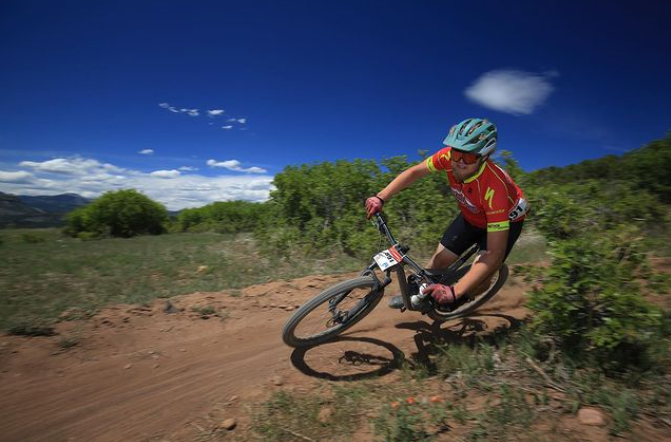Les Gets: Can Nino Schurter get back to winning ways ahead of Tokyo Olympics?
Nino Schurter has dominated cross-country mountain biking for the past decade and a half. Will he go out on top?
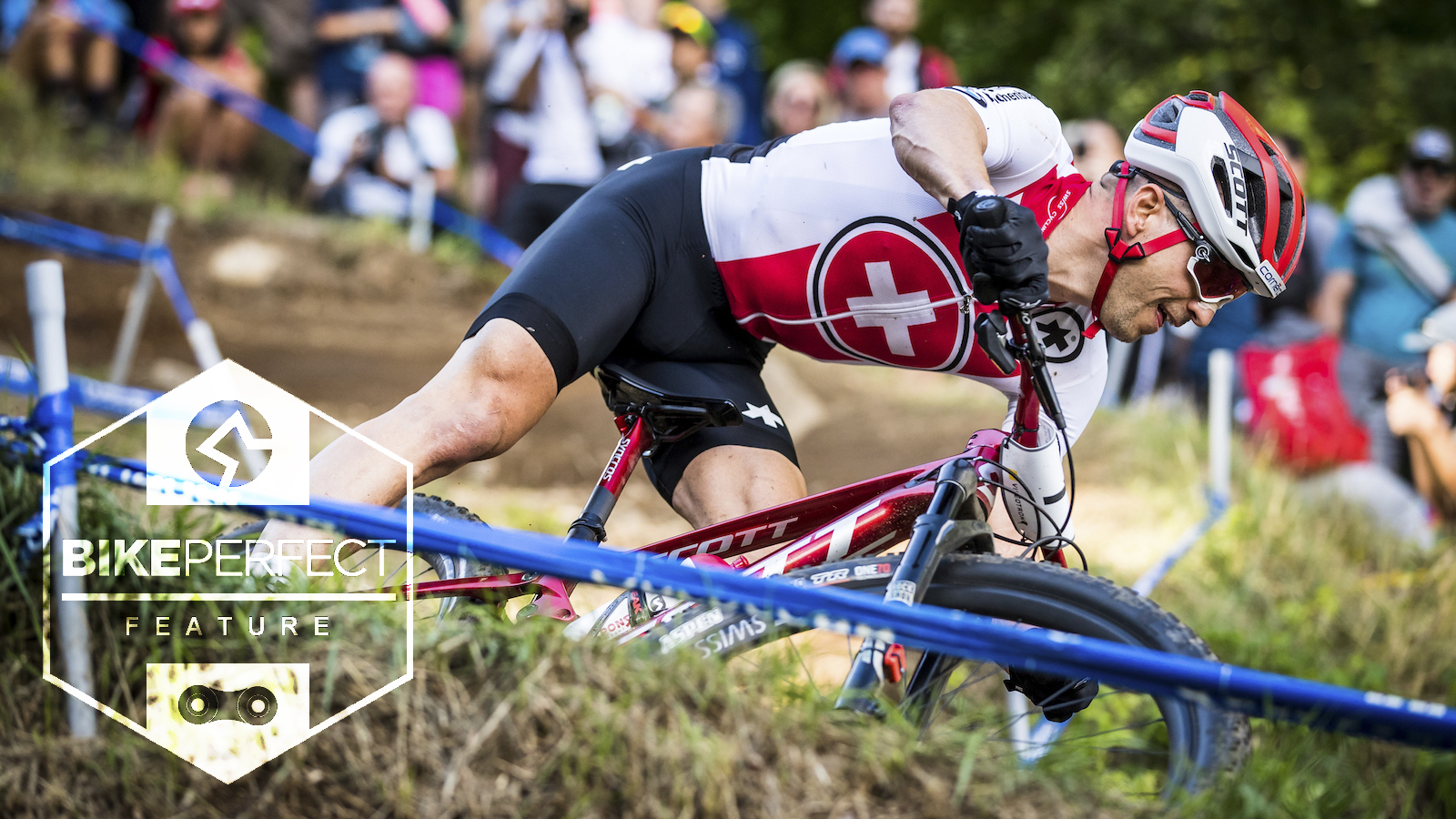
The first World Cup cross-country race of the 2021 calendar was held in Albstadt, Germany, and the 2016 Olympic Champion Nino Schurter appeared to be his usual self. Much of the pre-race hype surrounded two young multi-discipline stars, Tom Pidcock and Mathieu van der Poel. But there was no counting out Schurter, who’s been at the top of the sport for the better part of one and a half decades.
The Swiss racer appeared to be on a race-winning ride. He launched a final lap attack, gaining time on the competition during a singletrack descent, doubling a gap that none of the other riders were doing. As he tried to hold his speed to the tantalizingly close finish line, trouble was coming from behind in the form of 26-year-old Victor Koretzky. The Frenchman timed his surge perfectly and beat Schurter to the line by two seconds.
The Legend
If you’ve spent any time paying attention to competitive mountain biking, you’ve probably heard of Nino Schurter. He’s won so many times that at times it seemed like no other rider could match his abilities—especially in 2017 when he had a perfect season, winning all six World Cup rounds, a World Championship title, and the Absa Cape Epic in South Africa.
In addition to that, he’s an eight-time elite World Champion, seven-time World Cup overall winner, has won individual World Cup rounds 32 times and was the 2020 European Champion. And of course, he could make up an Olympic podium all by himself as he has won bronze, silver, and gold in Beijing, London and Rio de Janeiro, respectively.
What makes Schurter’s career so impressive—in addition to knowing how to reach peak fitness ahead of the most important races and pilot his bike through technical terrain with Swiss precision—is his enduring dominance throughout the years. A lot of riders have dominated for a few seasons, and then they slip back into the top-10 range, with occasional trips to the top step of the podium. But Schurter proved that he could win, and then he kept winning and winning and winning.
That longevity also required Schurter to successfully adapt to technological advancements in the sport, like 27.5- and 29-inch wheels, as well as course design changes that really took off around 2012.
Is Schurter on the tail end of his winning days? At 35, he’s one of the older riders on the World Cup circuit. That’s led some to speculate that Tokyo is the last Olympic Games that he could likely win.
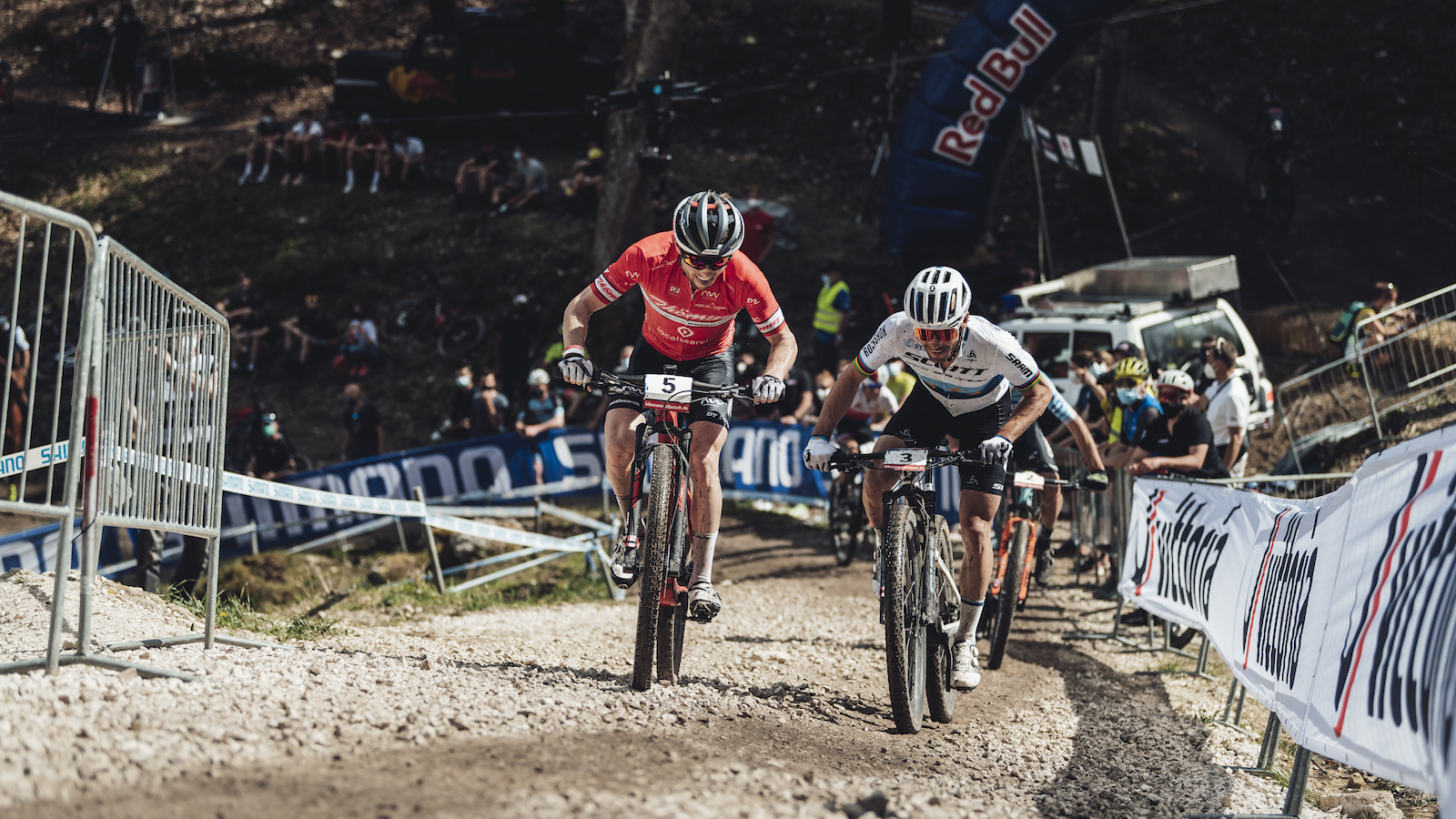
- Cross-country mountain biking: everything you need to know
- Best lightweight mountain bikes
A long career
Schurter was born in Lugnez, Switzerland, about 250 kilometers from his current place of residence in Chur. From a young age, mountain biking fascinated Schurter, who rode during most of his free time and holidays alongside his older brothers and father. Around the same time, as the racer writes on his website, the Swisspower Cup series of races began, which is where Schurter cut his teeth as a racer. In 2003, he joined a team run by Thomas “Frischi” Frischknecht, who himself is a multi-time World Champion and is considered an elder statesman of mountain biking in Europe. Schurter has stayed on the team, Scott-SRAM, until this very day.
In 2004, Schurter won the junior World Championship title in Les Gets, France, and then he took the title again as a U23 at the 2006 event in Rotorua, New Zealand. Three years later in Canberra, Australia, he rode to the first of many elite World Championship wins.
Not only could Schurter compete in shorter XCO races. He twice won the Cape Epic stage race, in 2017 and 2019, which showed that he could win during long, multi-day endurance events. This makes him one of the most complete cross-country racers ever.
The legendary athlete’s skill set—the ability to reach high levels of fitness, a tactical race mind, incredible bike handling skills, and the willingness to suffer—has even attracted top road cycling teams. In 2014 he rode in the peloton at the Tour de Suisse and Tour de Romandie for the then-titled Orica-Greenedge team. After the experience, he committed himself to targeting the 2016 Olympic mountain bike race, which he won, and he seems to have moved past his flirtations with becoming a roadie.
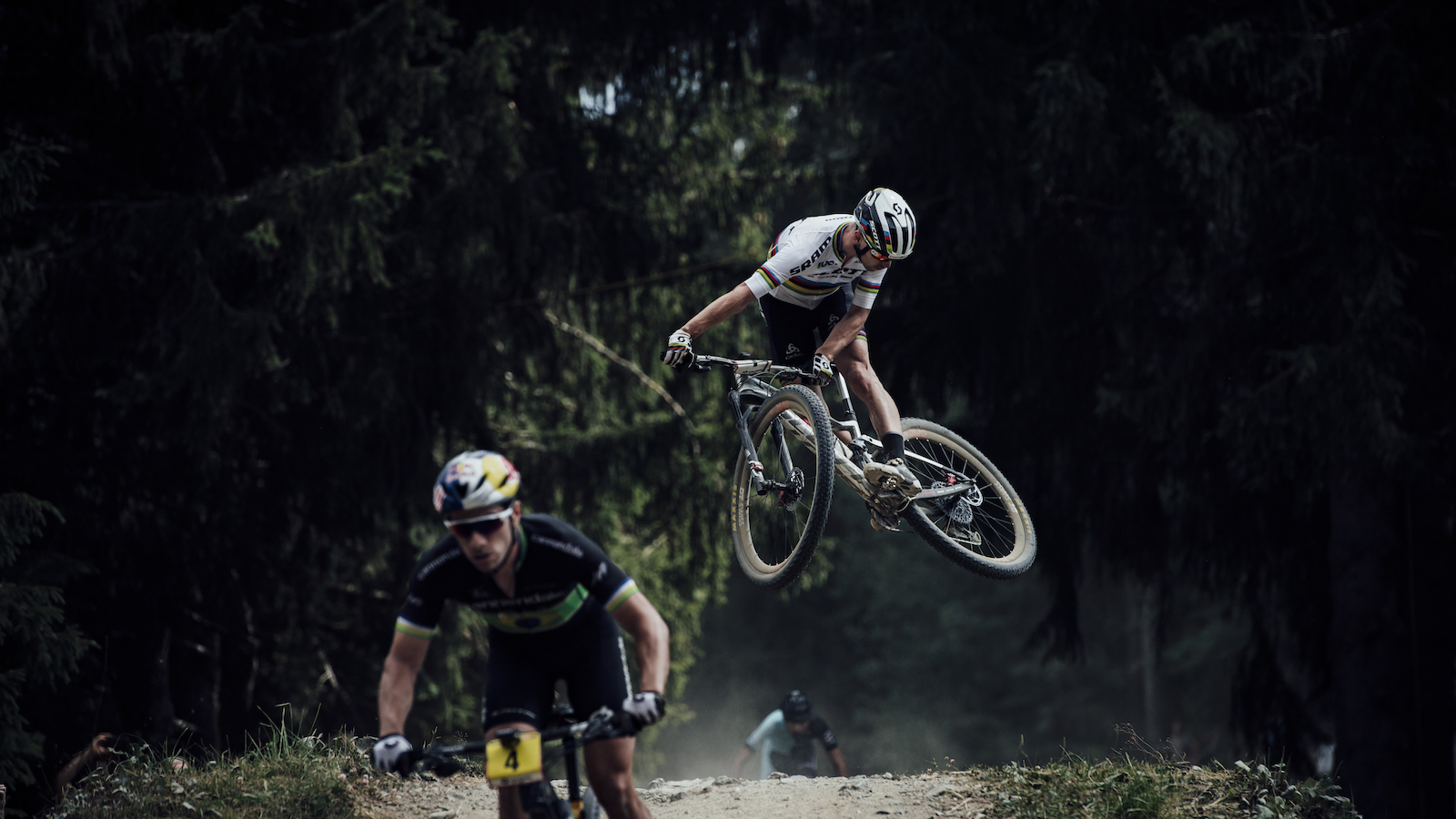
A changing sport
The Swissman became known for winning races aboard 27.5-inch, or 650b, wheels. When his career started, mountain biking was deeply entrenched in the tradition of riding 26-inch wheels. As the years rolled on, engineers got to tinkering, and both bike brands and riders began to realize the benefits of bigger hoops.
Twenty-niners came onto the World Cup circuit around 2010. Schurter and his team felt there were benefits to a bigger wheel, but the 3-inch jump was just too big. Instead, they experimented with an in-between size, 27.5-inch, which could feature a similar roll-over ability of 29ers with the snappy handling of a smaller wheel.
“We had some tests here in South Africa in December when we had the 26, the 27.5 and the 29er all built up exactly the same with the same wheels and everything,” Frischknecht told BikeRadar at the start of the 2012 season.
“We tested them in a group of three pretty intensely over 14 days and we came to the conclusion that the 27.5 feels like 26 in tight, technical and slower stuff but rides more like a 29er on faster singletrail and gives you almost the same safe feel,'' he went on. “Our conclusion after those tests was that it’s not a compromise – it combines the best of both worlds and we’re totally convinced this is the way to go.”
Indeed, Schurter won plenty on 27.5-inch wheels, but there is one race that he lost.
The Olympic mountain bike course in 2012 was built near Basildon, about an hour's drive from the center of the city. Race day saw seas of excited fans cheering riders down man-made rock gardens and up sharp climbs. At the end of the race, Czech racer Jaroslav Kulhavy outsprinted Schurter for gold.
While we don’t know precisely why Schurter switched to a 29er, we do know that the Rio Olympics were on both his and his team bike sponsor, Scott’s, minds. Frischknecht has said that Schurter initially couldn’t get the same ‘slammed’ on-bike position on a 29er as he liked on 26 and 27.5-wheeled bikes, which is why he went with the medium option in 2012.
With a bronze and silver medal in his pocket, every detail must have been examined to see what could get Schurter his missing medal in Rio. And Scott confirmed that 2016 was on their minds as well.
“We are expecting an average speed of 28kph in Rio, which is quite fast and best tackled with bigger wheels,” Joe Higgins, head mountain bike engineer at Scott, said at the launch of the 29-inch, full-suspension Spark cross-country bike, as reported by Tread. “That’s why we began working on Nino’s set-up on a 29er some time ago.”
“The course in Rio is mostly open and fast,” Schurter said at the bike launch. “There aren’t many short, steep climbs. I feel the 29-inch wheels will be the best option for me.”
He added: “Most of the course is very smooth and compact, which means it’s fast rolling, but there are some really challenging technical bits which are better to ride on a dual-suspension bike.”
We all know what happened next. And heading into Tokyo, Scott has recently debuted its new Spark, which features an integrated suspension design. The bike is one of the sleekest XC bikes in the pack and is being piloted by riders like Schurter’s teammate and fellow champion Kate Courtney.
The race in London was also a turning point for the discipline of cross-country racing: course design. Both the Olympics and World Cup circuits require courses that are easy to access for spectators, both in-person and on video. For this reason, courses have become shorter and don’t feature things like extremely long climbs. Rather, they require that riders have punchy legs for climbs less than 10 minutes long and great handling skills for technical descents filled with rocks, roots and drops.
It’s a testament to Schurter’s athletic ability that he was able to adapt both his fitness and bike handling skills to the modern courses that have been developed since 2012, like the track in Nove Mesto, Czech Republic.
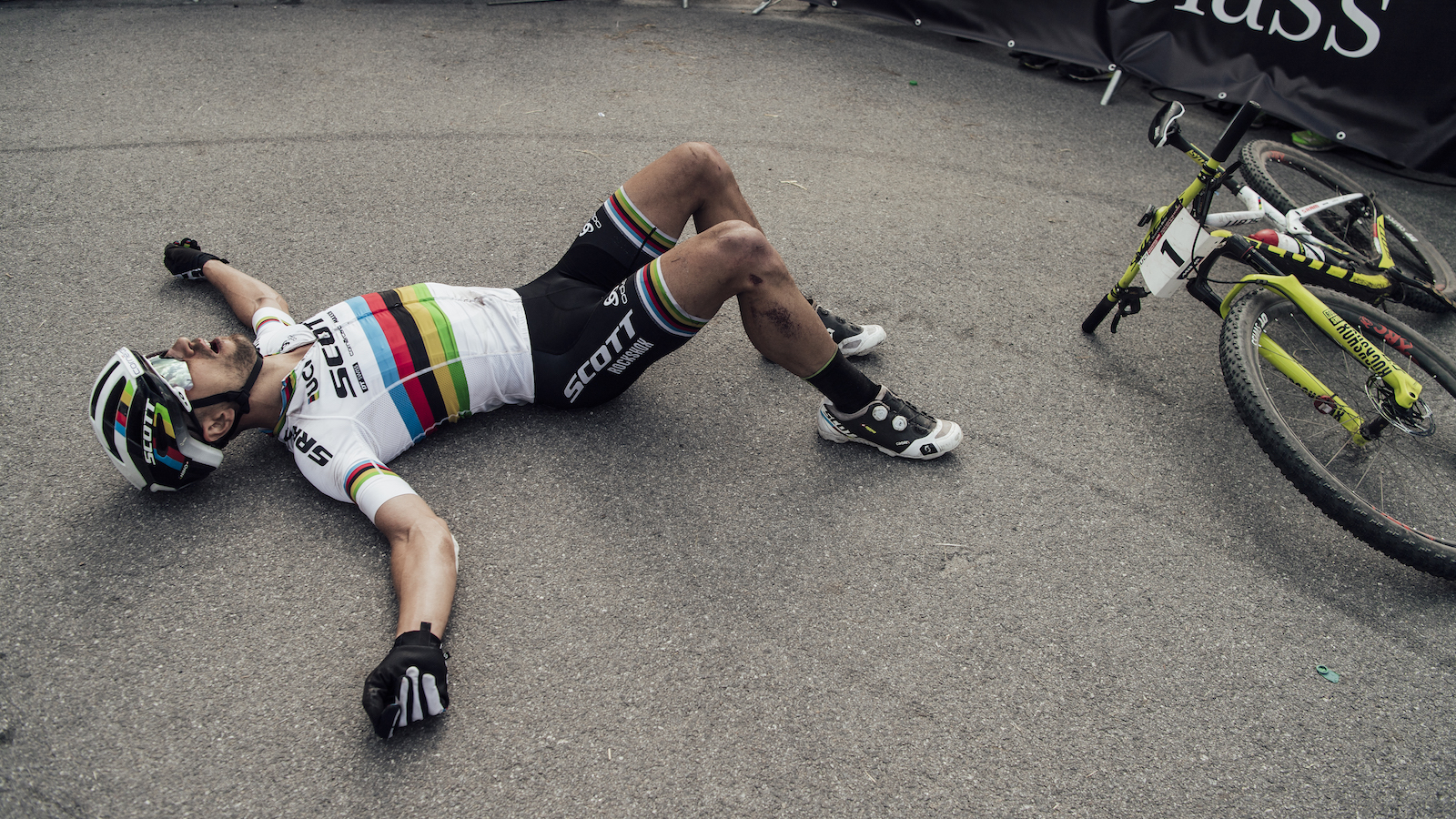
Nino's future
It’s not like Schurter is having a terrible year. He’s still the number one ranked male cross-country racer in the world, and he hasn’t finished worse than tenth place in a World Cup XCO. However, top-10 is not satisfactory for a racer that’s used to winning, or at the very least being on the podium.
At the most recent race in Leogang, Austria, Schurter slipped both of his pedals in the short track race, essentially ending his chances from the gun. In the XCO race, he didn’t have the legs to catch the lead group of the eventual winner, and fellow Swissman, Mathias Flueckiger.
“Went with a great feeling into this World Cup weekend but my bad start/mistake at the short race destroyed somehow all this,” Schurter posted on social media after Leognag. “A 10p is under my expectations and I need to be patient at the moment and trust my capabilities. At least my last two lap times were good, shape should be there though but where is my mojo?”
There are a few scenarios that could explain what’s playing out this year for Schurter, who has already been selected by the Swiss cycling federation to defend his gold medal in Tokyo. One guess is that his form is simply still building up to its peak. World Cups are important, yes, but the Olympics are the ultimate goal. Even if the form is there and Schurter lacks that winning ‘mojo’, bad races simply happen.
We’ll get another chance to see what Schurter can do at the Les Gets World Cup, the last test for the pack before Tokyo. What happens in Japan could determine the rest of his career. He could determine (based on a win or solid showing) that he wants to continue and race the Olympics in 2024. That would be determinant on selection by Swiss Cycling in 2024, and young guns like Pidcock who are hellbent on taking the cycling world by storm.
- Les Gets XCO preview: The final test before Tokyo
Considering his age, it’s more likely that the racer will retire before the 2024 games. Of course, nobody can say for sure.
“Just because I wasn't at the top of the podium in three races doesn't make me completely nervous,” Schurter said in an interview with Bike Magazin. “I have so much experience now that I know that it takes very little to get back to the top from my current position.”
“My successes in the past give me a certain degree of confidence with regard to the Olympic Games.”
What we can say is that no matter how Schurter finishes his career, he elevated the level of professional cross-country racing, serving up awesome battles with his competitors and providing great racing action for fans.
Ryan Simonovich has been riding and racing for nearly a decade. He got his start as a cross-country mountain bike racer in California, where he cultivated his love for riding all types of bikes. Ryan eventually gravitated toward enduro and downhill racing but has also been found in the occasional road and cyclo-cross events. Today, he regularly rides the trails of Durango, Colorado, and is aiming to make a career out of chronicling the sport of cycling.
Rides: Santa Cruz Hightower, Specialized Tarmac SL4
